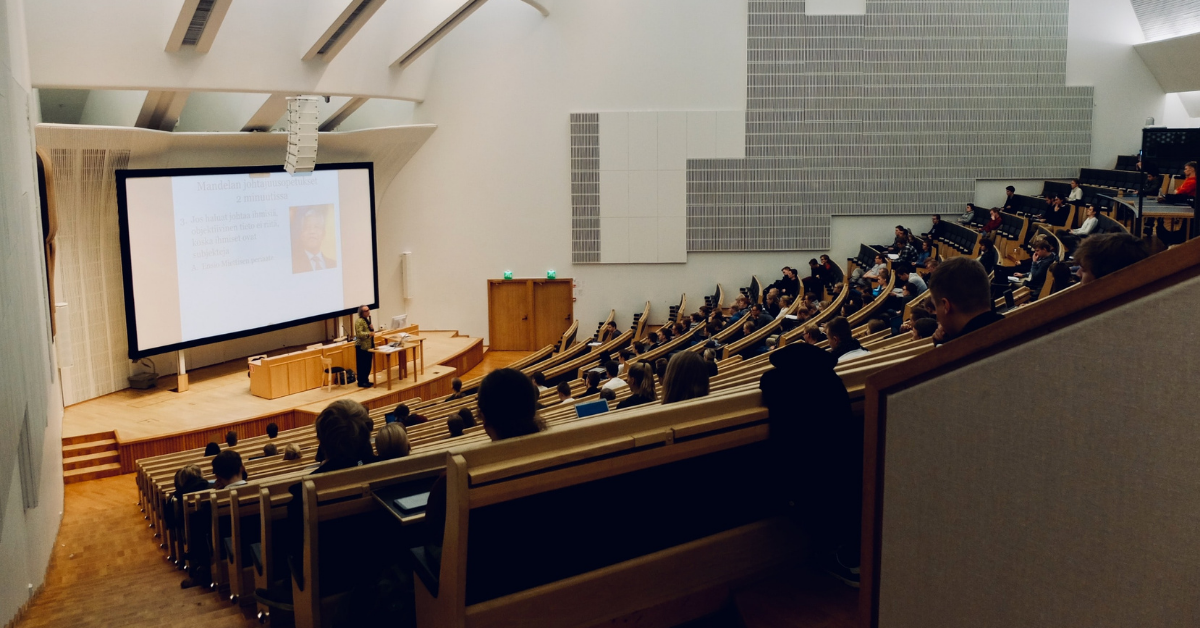Event
Teaching Development Studies: What, why and how?
 Photo: Unsplash / Dom Fou
Photo: Unsplash / Dom Fou
Date: October 22, 2021
Are you a teacher or study director within development studies in Sweden? Welcome to this SweDev workshop about teaching development studies. The event will be a first-time opportunity to learn more about the diverse ways in which this subject is taught at our universities across Sweden and discuss common challenges and opportunities.
Development studies is a broad field, taught in various departments across universities. Despite the broadness, there are many commonalities and much to be learnt from each other. How can we generate greater collaboration across disciplines and institutions? Take this opportunity to share your experiences, connect and learn from others.
There have not been any opportunities for people involved in development studies education across Sweden to meet and to learn across our different institutions. We want to change this within the umbrella of SweDev. We want teachers within development studies to learn from each other and to share experiences about some of the joint issues we stand before within our field. How do we deal with the differences across disciplines? How do we deal with complex issues of today such as COVID-19 and climate change? How should we approach the colonial legacy in topics related to development studies?
Apart from hearing your thoughts on some of these tricky questions, we are eager to discuss some of the opportunities that current issues also present us with. Perhaps the ban on travelling has created solutions to our dilemmas in form of digital fieldwork, collaboration with researchers across borders and greater exchange of knowledge?
As we need to think creatively and work together on all these issues, we look forward to at least start the discussion together during our half-day teachers’ workshop on 22 October 2021. Hopefully, we will be inspired to continue with a series of seminars on different topics that we identify together. Join our journey from the start – sign up for the workshop today!
More information will be provided closer to the event. For questions, please contact .
We look forward to seeing you at the Teachers’ workshop!
Best regards,
Flora Hajdu, Jonas Ewald and Rickard Lalander, SweDev Education Working group
Agenda and topics
During the event, participants will be divided into smaller groups to discuss one of four current topics related to development studies education. Participants should choose 1-2 of the following topics when registering.
1. How do we teach development and sustainability-related issues considering trade-offs and differences in viewpoints that exist in the field of development studies?
Discussion around this topic concerns how we can deal with differences within our field. Development studies is being taught in widely varied environments. Either as a specific discipline, as part of other disciplines, such as anthropology, economics, geography, political science or sociology, or with a focus on specific areas including rural, global or area studies. In teaching development studies from different viewpoints, how do we deal with potential trade-offs that exist? While we might have slightly different takes and approaches to this broad field, the potential for mutual learning and collaboration is immense.
2. How do we approach field studies providing for deep local knowledge amidst current crises, including the COVID-19 pandemic and climate change?
The second discussion topic relates to the many challenges and opportunities that are specific for those of us who research and teach about places that are far away. Complex crises of today, including the COVID-19 pandemic and climate change, require us to rethink old practices. How do we handle a post-pandemic situation that has had very different effects on high-income and low-income countries? How do we think about the simultaneous climate crisis that prompts us to consider very carefully how to justify travel by high-emitting transportation to faraway places? Is taking responsibility for the climate possible to combine with teaching with a deep field knowledge?
3. What is the content of education considering global challenges and preparing students for their future career paths?
The third discussion topic deals with connecting education with practice. Considering new and old global challenges, how do we prepare our students for a future career in development practice? This concerns how we relate to the discourses of international development cooperation in our teaching and how we address issues of collaboration with development practitioners, including NGO activists, and local actors.
4. How do we approach decolonial teaching?
The fourth topic deals with how we approach the colonial legacy in topics related to development studies. Not least when more and more people in the classroom (especially the digital classroom) are from the countries we teach about and have experienced resilient colonialism in their own lives. How do we approach the sensitive issues of lingering colonialism in a respectful way that allows all students from different backgrounds to feel comfortable? How do we deal with differences in experiences and opinions in an ethically sound way? How can we identify and wash out lingering Eurocentrism from our teaching that we may not even be aware of? In which ways can we consider our language, the images we use, the examples we give, the literature we read and the way we talk?
Registration for this event is closed. A summary will be posted shortly. Our Education working group will continue to arrange several opportunities to meet and discuss with other teachers. Please contact us if you want to contribute to our work.
